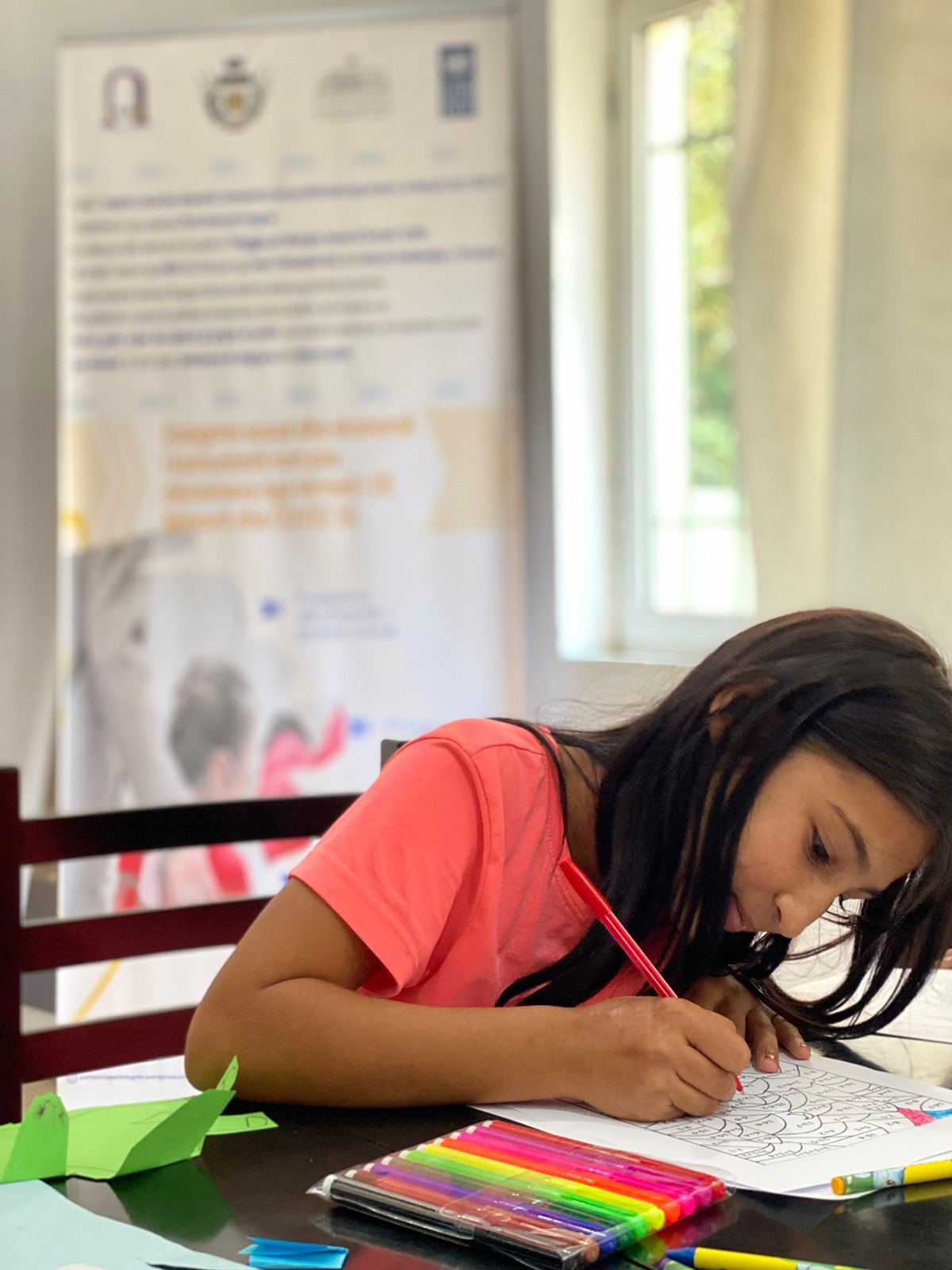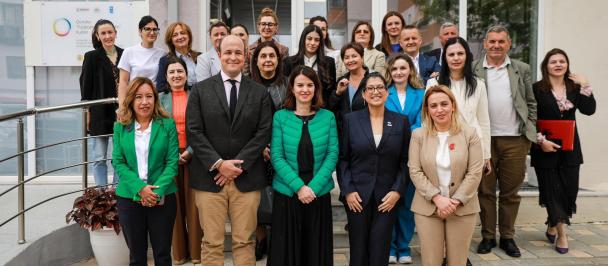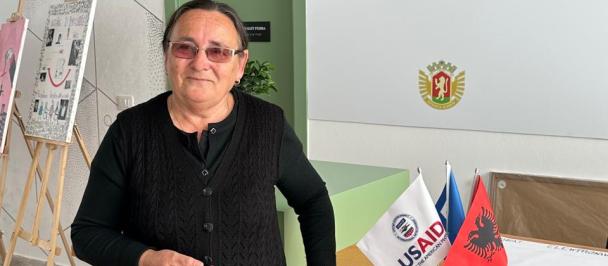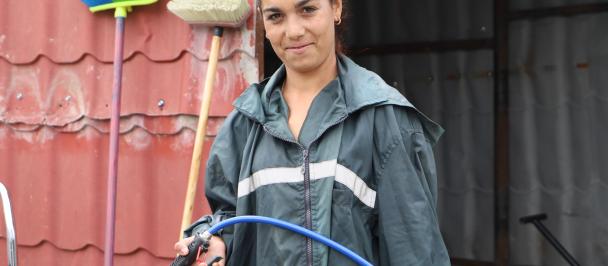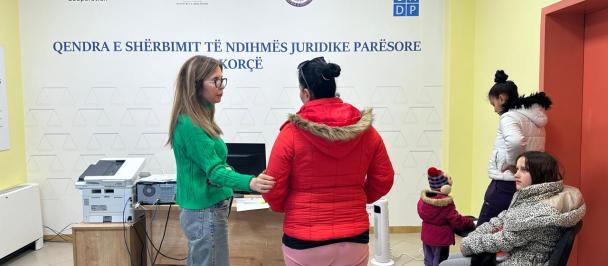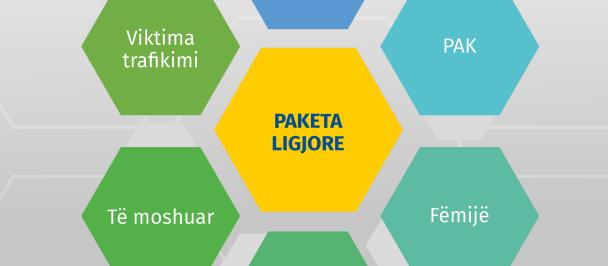Earthquake Social Protection Response
What is the project about?
As part of the overall efforts of the Government of Albania to address the damages and effects of the 26th November 2019 earthquake felt in a considerable area of the country, UNDP is supporting the Government of Albania in its recovery efforts through several interventions. The project ‘Strengthening the Social Protection Response after the Earthquake in Albania’ (ESPR) addresses social inclusion, protection and the needs for the most vulnerable groups impacted in the aftermath of this natural disaster by aiming to increase social and economic resilience of the affected communities.
Funded through a pool of donors – Governments of United Kingdom, Norway and Finland – as well as SDG Acceleration Fund, the project is supporting government and local authorities to develop strategies and action plans to respond to social issues in emergencies. In addition, it aims to empower and support people and their families, communities directly impacted by the earthquake as well as those living in poverty, people with disabilities, other vulnerable categories and ethnic minorities, both in urban and rural areas. Further, the ESPR project will aim to integrate measures that further contribute to resilient communities and increased transparency and strengthening of voices of those benefiting directly or not from this project and other similar initiatives supported by UNDP Albania.
The November 2019 devastating earthquake which hit Albania, according to Post-Disaster Needs Assessment (PDNA) report, affected more than 200,000 people across 11 municipalities, with 51 fatal cases and 913 people injured, with an estimated material damage of EUR 955 million. Social protection losses, mainly referring to governance, coordination, and disaster management as well as referrals, psycho-social counselling and social care services, are estimated at 623.5 thousand EUR (76.7 million ALL) in the Albanian Post Disaster Needs Assessment Report. The total needs of the sector are estimated at 2.83 million EUR (348.2 million ALL).[1]
As observed in similar events in other countries, the immediate consequences experienced have important and lasting implications for people’s well-being. Not only do they lead to immediate losses in income and increases in poverty rates, but they also have longer-term effects that can be irreversible. As households struggle, they engage in coping behaviors such as selling of productive assets, skipping meals or eating less nutritious food, postponing medical care, and taking children out of school. By preventing people from falling below a critical threshold of well-being, and reducing households’ perception of risk, social protection can prevent transitory shocks from having permanent consequences.
The project will support the Albanian Government and three earthquake impacted municipalities – Durres, Shijak and Kruja - in the process of designing and translating the policy intent into proper local actions to ensure that men, women, girls and boys living in poverty, or vulnerable situations, intersecting with post-earthquake conditions, have access to integrated, quality social services. To achieve this goal, the project focuses on the following outcome: all women, men, girls and boys, especially those from marginalized and vulnerable groups impacted by the earthquake, are exercising their entitlements to equitable quality services, in line with human rights and there is increased social and economic resilience of earthquake affected communities. It excludes cash based schemes, thus focusing mainly on integrated social care services with linkages to employment, livelihood and income generation, support for farmers and inclusive education.
Equally, the project will contribute to address any of the multidimensional impacts of the COVID-19 and to protect the needs and rights of people living under the duress of the pandemic, with focus on the most vulnerable groups, and people who risk being left behind.
In order to be aligned with important national priorities of Government of Albania, the ESPR project contributes to the outcomes and recovery Strategy of the Post-Disaster-Needs-Assessment conducted immediately after the November 2019 Earthquake as well as the UN Albania Covid-19 Socio-Economic Recovery and Response Plan.
Project Outputs
1. Increased social and economic resilience of earthquake affected communities
2. Strengthened transparency and voices of affected communities.
What we have accomplished so far?
- 7 Civil Society Organisations supported with grants to assist municipalities of Durrës, Krujë and Shijak in improving and expanding the delivery of Social Services to affected communities. They work in some of the most affected areas providing much needed psycho-social support, collaborating with Departments of Social Care in assessing and coordinating delivery of services as well introducing models of community-based initiatives towards cohesion and resilience.
- An integrated model of socio and economic/livelihood model for individuals, families and communities started its implementation by World Vision Albania.
- Review and improvement of protocols for providers of social services in emergency situations at local level
[1] Council of Ministers, EU, UN, WB. Albanian Post Disaster Needs Assessment Report, Volume A. 2019

 Locations
Locations